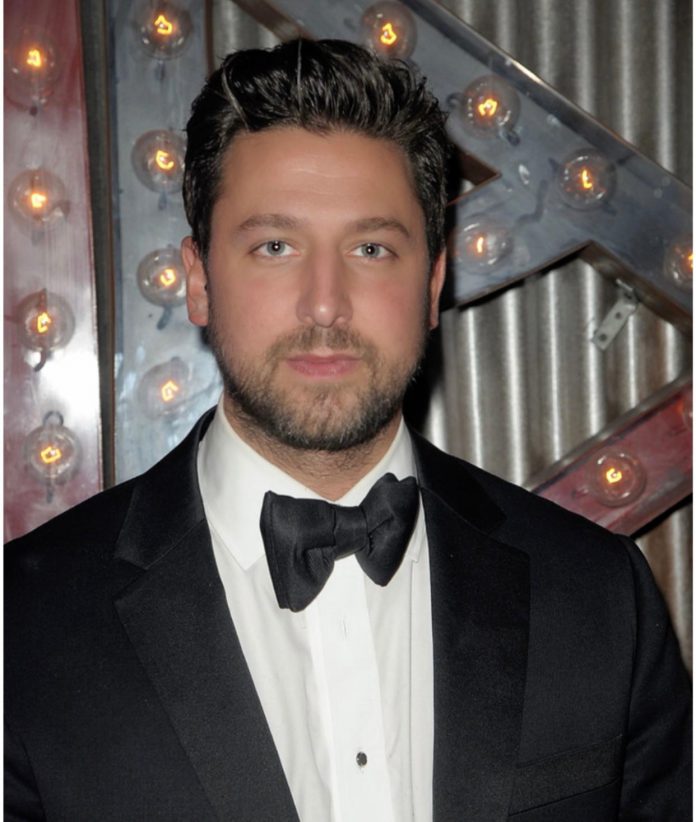The City That Never Sleeps has continued to fight an uphill battle for the majority of 2020. Many favored stores, restaurants, cafes, bars, and nightclubs have had to permanently close their doors from COVID-19 constraints, which have, sadly, depleted financial resources. Staying calm and collective is a rarity among owners, but restaurateur Will Makris is managing. The former nightlife impresario juggled miscellaneous jobs and knew all too well the struggle of obtaining financial stability. While no one was adequately prepared for the pandemic, Makris is thankful now more than ever for his strenuous career
background. Makris worked all those late nights and weekends for unfulfilling jobs, gifting him with resilience. His leadership and determination to promote “New York is Not Dead” has well-served his restaurants like Lola Taverna and Little Prince.
Q: What was your experience like when you first started in the nightlife sector for groups such as TAO, Butter, and Provocateur? Who saw your potential and helped you up the ladder?
W: The first person to see it was Michael Satsky, who gave me a job as a promoter at 22-years- old at a club called Stereo. I started working with this actor named Gerald Bunsen, and he moved to Los Angeles for a bit, so Michael asked me to fill in for him. Then,
when Michael and Brian Gefter opened Provocateur in meatpacking, they also hired me to work for them. I started as the assistant manager in the cafe and ended up running the entire cafe, seating, and guest list with them. It really pushed me forward in the
business because we had the best people in the world coming there. After that, my now-partner Scott Sartiano and his partner at the time, Richie Akiva, noticed what I was doing at Provocateur and offered me to run the lounge at the place they were opening
called The Darby. It was a great couple of years with them as well. I owe a lot of my success and contacts to following their lead and footsteps.
Q: You forwent a college degree and decided the experience was more valuable. What was a lesson you learned or a piece of advice that has remained with you throughout your growth?
W: Well, I didn’t skip college because I didn’t think it was valuable. My parents didn’t have much money and certainly not enough to get me into college. And my grades weren’t exactly where they needed to be for a scholarship, so I chose to jump right into the working world. I did every job under the sun. Cable guy, stockbroker, mortgage broker, house painter, you name it, I tried it. It was a great experience to meet so many people from all over, and I think that helped develop my social skills in my 20s. A piece of advice
someone gave me that stuck with me was from one of my best friends who told me, ‘you’re not built for painting houses; you have more to give to this world than that.” That stuck with me and pushed me to do things that I didn’t think I would ever be able to
reach.
Q: Previously, you mentioned the industry’s supportiveness, especially during this unprecedented time; why do you believe the New York-based industry has a family mentality? Who has been by your side through the highs and lows?
W: This has been hard for everyone. I noticed things went from being ‘competitive’ to ‘how can we help each other.’ From Maggio Cipriani to Noah Tepperberg, who owns the Tao group, I feel like I could pick up the phone and ask for help or advice at any time, and these guys are happy to lend a helping hand. It’s really been a blessing to have each other’s back.
Q: Proper Partnership, connections, and communication are all essential for long-lasting restaurant success. How have you kept these fundamentals with your competitors, and why are they willing to reciprocate?
W: I think in every business, if possible, try to keep a good relationship with your peers and competitors. That’s obviously not always possible, but whenever I left one company or decided to go another avenue in business, I always tried to keep a good relationship
and help them even if I wasn’t working with them or getting paid. I think that’s gone a long way because now everyone I ever worked with or took care of is super happy to help or support me in my endeavors.
Q: New York has taken a beating, and many restaurants have had to close their doors permanently. What has it been like on the inside? What have you and your competitors done to stay afloat, and what do you think the future of the restaurant business looks like?
W: It’s been super scary. I don’t think any of us thought that they could stop us from opening and making money for our families. This has been unknown territory for a lot of us, so it’s a huge adjustment. We usually worry about how many people are coming in, not
if we can open our doors, and how many can come inside and how far apart they are. Sadly, some restaurants are closing, but the majority of us are pushing forward. Maybe even letting go of some of the extra fat and things we don’t need to focus on. Knowing
how to let certain things and venues go is also important to push forward. Although we have had all these changes against us, I think the future of the restaurant/hospitality business is alive and well and will continue to grow. This was definitely a test
of our strength and resilience, but we will come back stronger and better for sure, especially New York! This is what we do.

